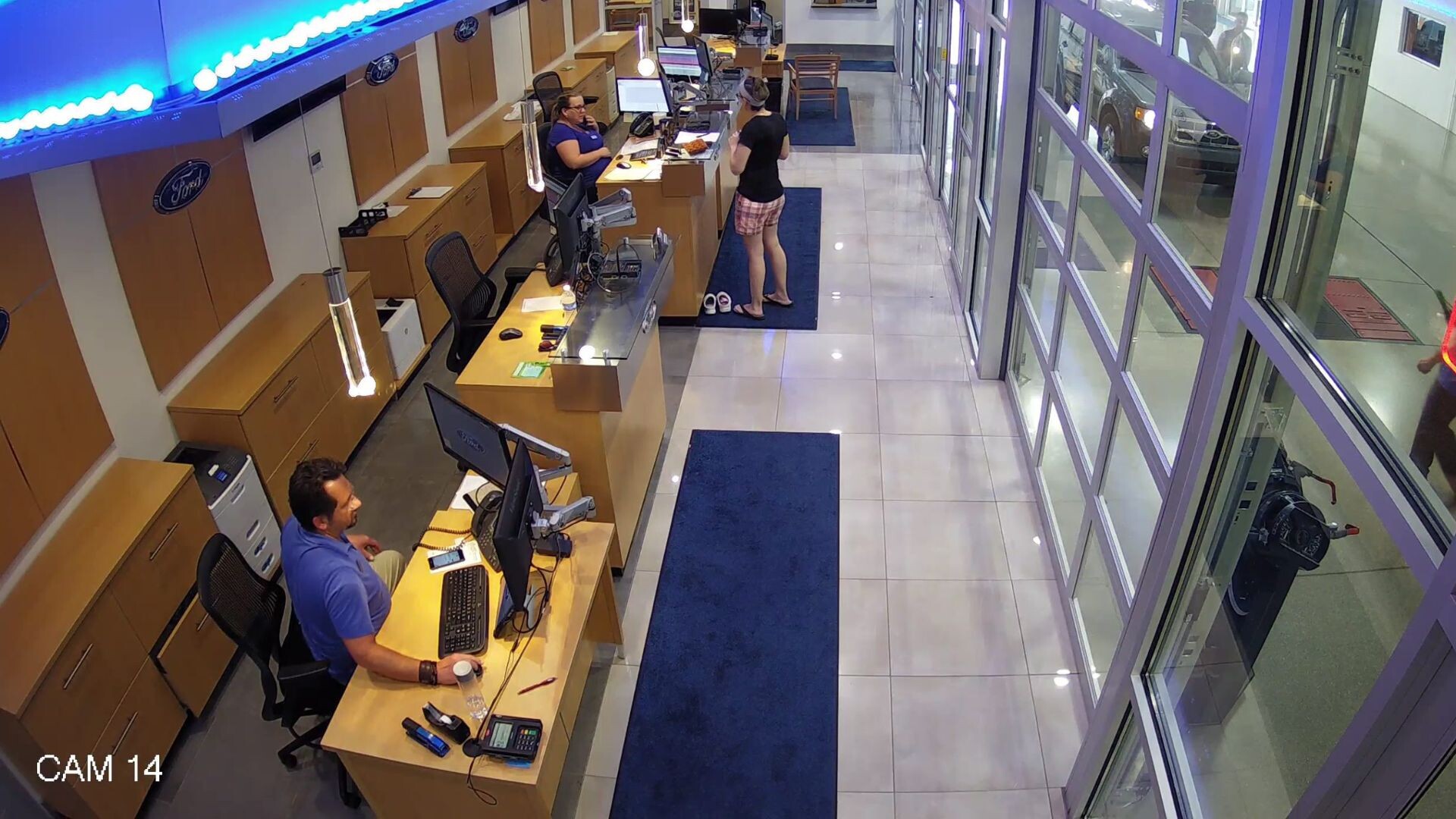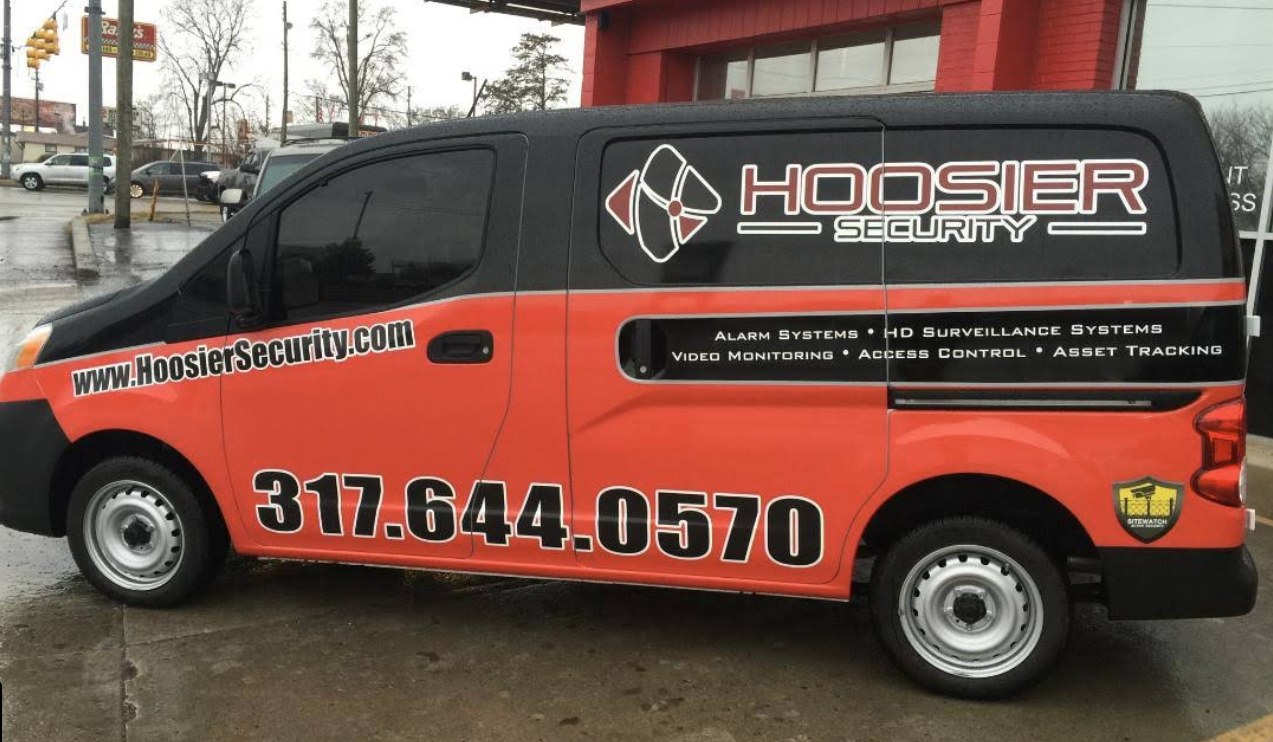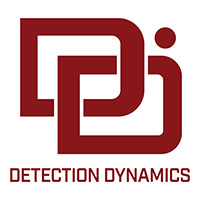Selecting a commercial security integrator is a high-stakes decision, especially for organizations with large facilities, multi-site operations, or complex environments that demand tightly integrated systems (video surveillance, access control, alarms, AI analytics, environmental sensors, communications, etc.). The right integrator becomes a long-term partner in protecting your business, not just a vendor selling hardware. The wrong choice, on the other hand, can lead to costly frustrations: siloed systems that don’t “talk” to each other, poor service when cameras go down, surprise fees, or a security setup that can’t scale as you grow. This article dives deep into what seasoned IT directors, facilities managers, and security leads have learned to ask and evaluate before signing on with an integrator, whether you’re deploying a new system or switching from a disappointing provider. We’ll explore common pitfalls with past integrators, the qualities that define a true integration partner, and the key questions that reveal if an integrator is up to the task of delivering a service-backed, engineered solution (and not just a low-bid install).
Lessons Learned: Common Frustrations with Previous Integrators
Many companies come into the integrator selection process with battle scars from past experiences. Being aware of these common pain points can help you vet new candidates more effectively and avoid repeating mistakes. Some of the top concerns and frustrations that decision-makers cite about previous security integrators include:
- Systems Not Truly Integrated: Perhaps the biggest gripe is ending up with a patchwork of security components that are not unified. For example, an organization might have different brands of access control at each site or separate software for video and alarms, all installed by the “lowest bidder” each time. The result is inconsistent product lines and multiple logins or interfaces that operators must juggle, which is confusing and cumbersome. One integrator might not know (or care) how to tie everything together. The integration gaps mean the customer never gets the full benefits of the technology they paid for. As Security Today notes, it’s important to ask how truly integrated a given solution is. Sometimes, a so-called integrated system only exposes basic functions and leaves out advanced features of each device. Decision-makers have been burned by assuming “it will all work together” without digging into the details.
- Poor Service Quality and Support: Another common frustration is integrators who disappear after the install or respond sluggishly when the system needs service. Security systems are mission-critical; cameras or alarms that stay offline for days due to slow support can create serious vulnerabilities. Many firms have found out too late that their integrator’s maintenance was not included or not adequate (e.g., no proactive check-ups, and slow break-fix response). In some cases, choosing the lowest bid meant critical services like system design, testing, preventive maintenance, user training, and documentation were omitted from the contract and offered only as expensive add-ons. Such hidden exclusions lead to surprise costs and lengthy downtimes when issues arise. It’s telling that integrators themselves acknowledge these problems: they stress that clients and providers must discuss maintenance expectations upfront, covering details like contacts, 24/7 availability, and response times, so there are no nasty surprises when the first outage occurs. If your last provider didn’t spell out their service commitments (or failed to meet them), it’s a sign to double down on evaluating support in your next selection.
- “Integration” in Name Only (Lack of True Engineering): Some vendors call themselves integrators, but in practice only install one piece of the puzzle (for instance, they might only handle video cameras and leave you to find someone else for access control or alarms). This leads to finger-pointing between vendors and a lack of accountability when problems occur. Ideally, one integrator should take responsibility for the entire ecosystem. In fact, security executives have found that when they consolidate systems under a single integrator, accountability improves and so does service; there’s no passing the buck when one partner is responsible for all security systems. A genuine integrator firm will have expertise across multiple domains (video, access, intrusion, life safety, IT networking, etc.) so they can design a unified solution rather than a fragmented one. If your last provider couldn’t see the big picture or blamed others for issues, it’s a clear frustration to address. As one industry comparison put it, many generic “security companies” focus on individual components and quick fixes, whereas a true integrator “manages every moving piece, bringing multiple systems into cooperation to provide comprehensive protection”. Lacking that comprehensive approach leaves you with siloed systems and no single throat to choke when things go wrong.
- One-Size-Fits-All Solutions: Every facility and business has unique security challenges. A hospital has different needs than a warehouse or a campus. Yet a common complaint is that some integrators push a cookie-cutter system (often whatever gear they get the biggest discount on) without truly assessing the client’s risks or growth plans. This “bare minimum” approach might check the compliance boxes for today, but it fails to account for tomorrow. Companies have been stuck with systems that can’t scale or adapt (e.g., a system that maxes out at 100 doors when you open a 101st, or CCTV cameras without support for newer analytics). Lowest-bid proposals are especially prone to this problem: they meet the specs on paper but with no cushion for expansion or tech evolution. One facilities director described it as “we got exactly what we asked for, and that turned out to be a problem”, because no one guided them to think ahead. The frustration here is ending up with a short-term “band-aid” fix instead of an engineered solution that grows with the business.
- Low-Quality or Proprietary Products: Integrators who win on price often cut corners by using cheaper, lower-grade hardware, and that can haunt you later. Users report issues like cameras failing frequently or software that lacks useful features. For instance, a bargain system might not support enterprise single sign-on or might have limited integration capability, forcing awkward manual workflows. Even worse, some solutions are proprietary, locking you into that vendor for all future needs. If your integrator installed a closed system, you might discover that integrating new sensors or analytics is “difficult or impossible” because the system won’t play nice with others. Proprietary lock-in also means that if you become unhappy with the service, switching out the system is an expensive ordeal, a lesson many companies only learned after being stuck with unmet needs and suboptimal workflows. Modern security leaders value flexibility, the ability to choose best-of-breed components. Being handcuffed to one vendor’s ecosystem was likely a major frustration if you’re now looking to make a change.
Previous bad experiences often boil down to poor integration (both technical and organizational) and poor service. Systems that don’t integrate result in higher risk and operational headaches, and lackluster support leaves critical assets unprotected when (not if) something fails. Keep these pain points in mind as red flags. Your next integrator should convincingly demonstrate that they’ve solved these problems for other clients and have processes in place to prevent them.
What to Value in a True Security Integration Partner
Given those pitfalls, what does a world-class security integrator look like? The goal is to find a provider who acts as a partner in your long-term security strategy, not just an installer. Here are the qualities and capabilities that knowledgeable decision-makers prioritize:
- Holistic, Engineered Solutions (Not Just Gear Sales): The best integrators start with your business goals and risks in mind, not a catalog of products. They take a solution-focused approach rather than a sales-focused one. This means performing thorough site assessments, asking about your operational challenges, and then designing a system that truly fits, often combining multiple technologies into one cohesive platform. A true integrator will use “value engineering”, optimizing the design for function and long-term value, not just cutting features to lower cost. In contrast to companies that just sling cameras or card readers, integrators pride themselves on offering a full, end-to-end solution. As one integrator described, “Integrators use value engineering in the design process, focusing not on components but on function”. Look for a partner who can articulate how they will tie together access control, video, alarms, and even IT systems into one integrated whole that serves your needs. This big-picture mindset is especially critical for complex environments like campuses or multi-site enterprises.
- Broad Expertise and Integration Know-How: True security integrators distinguish themselves with well-rounded expertise spanning physical security, electronics, and IT. They should be just as comfortable engineering a badge system for 50 facilities as they are setting up an AI video analytics server or a wireless IoT sensor network. This breadth is what allows them to serve as a single point of contact for all security needs. Decision-makers highly value having one capable partner instead of siloed vendors, because it simplifies communication and ensures no gaps. It also forces accountability. The integrator can’t say “that part isn’t our problem.” In practice, leading integrators will standardize your security technology and even act as a “master integrator” for multi-site firms, coordinating all hardware and software under a unified service agreement. The benefits are greater consistency and easier management across locations. Make sure any integrator you consider has proven they can integrate disparate systems into one. According to Securitas Technology, a top integrator enables “a more seamless interaction with your systems” by being able to work with various vendors and products, giving you flexibility to choose the right components without worrying if they’ll connect. In other words, they shouldn’t be pushing a single proprietary platform, but rather integrating whatever mix best meets your needs. An integrator that lacks this systems integration savvy will leave you with segmented, inefficient security.
- Industry and Site-Specific Experience: Relevance matters a lot. If you operate a large campus, a factory, or a multi-tenant high-rise, you’ll want an integrator who understands those environments deeply. Seasoned decision-makers value integrators who have a track record with similar complexity. For example, an enterprise IT director might seek an integrator who has handled multi-site rollouts or high-security facilities with strict compliance (like healthcare or finance). The reason is not just technical; it’s also about knowing the operational nuances (e.g., minimizing disruption during installation, or knowledge of industry regulations). A true partner will have case studies or references from comparable projects that they can share. This is a good proxy for both competence and credibility. In fact, asking for references and success stories in similar industries is a recommended step in due diligence. Look for evidence that the integrator has solved the kind of challenges you have. For instance, have they integrated security with IT identity management in an office setting? Have they connected environmental sensors to the security monitoring system in a data center? Do they know how to secure a distributed retail chain with central oversight? A company with relevant experience will likely also understand future trends in your sector and be able to advise you proactively.
- Certified Technical Skill (Including IT/Cybersecurity): Modern security systems are IT systems. Everything from door controllers to NVRs rides on the corporate network and interfaces with software. Therefore, one non-negotiable for a true integrator partner is solid IT expertise on their team. Many frustrations with past integrators stemmed from their technicians not understanding networks, leading to configuration errors, security vulnerabilities, or conflicts with the IT department. savvy decision-makers now specifically evaluate an integrator’s networking and cybersecurity competence. You’ll want to know that the team can navigate firewalls, set up VLANs, manage bandwidth for high-resolution video, and follow cybersecurity best practices (like hardening devices and keeping firmware updated). As one industry expert pointed out, network know-how is often “the difference between a successful integration and an unhappy customer,” since an integrator who can’t work smoothly with your IT infrastructure will struggle terribly. Ask about certifications (e.g., are they Cisco certified, do they have cybersecurity training?) and how they keep their skills up to date. Good integrators invest in continuous training for their staff and maintain manufacturer certifications for the products they install. They should also know about emerging tech like AI analytics and cloud architectures, so they can incorporate those safely into your environment when the time comes. In summary, the integrator should bring strong technical chops to the table, both in physical security tech and IT, so you are not left educating them about network basics or worrying about insecure devices.
- Commitment to Long-Term Service and Support: Perhaps the clearest sign of an integrator who sees themselves as a partner (not just an installer) is how they handle ongoing service. Decision-makers consistently say that reliable maintenance and support are among their top values in a security provider. This includes preventive maintenance (to catch issues before they become failures), prompt repair service when something goes wrong, and regular software updates/upgrades to keep the system current. A true integration partner will typically offer service level agreements (SLAs) or maintenance contracts that spell out response times, coverage hours (24/7 emergency support vs. business hours), and even things like guaranteed loaner equipment if something needs factory repair. They also emphasize user training and system handover processes so that your staff can effectively use the system day-to-day. The difference here is between an integrator who is invested in your success for the long haul versus one that considers the project “done” on the day of installation. The former will often schedule periodic check-ins, provide performance reports, and suggest improvements over time, acting almost like an extension of your team’s security and facilities function. In fact, research on successful integrators finds they tend to focus on “long-term support, flexibility, and maintenance” as core to their business model. That’s exactly what end users should value, knowing that as your organization evolves (new sites, new threats, changes in staff), your integrator is there to adapt the system accordingly. If you felt neglected or nickel-and-dimed by your last provider whenever you needed service, you’ll find a stark contrast in a service-oriented integrator who proactively keeps your security running smoothly.
- Transparency and Trustworthiness: Last but not least, a true partner operates with honesty and clarity. They don’t hide costs or oversell capabilities just to win the deal. Instead, they set proper expectations and educate the client throughout the process. Many security leaders now pay attention to the integrator’s communication style and ethics during the vetting process. Do they answer technical questions openly? Will they put commitments in writing? Are they willing to say “this is not the right solution” if asked for something out of scope? A trustworthy integrator is one who you feel is on your side. They will gladly provide references, customer testimonials, and even let you tour existing client sites if possible. They understand that they’re vying to be your long-term partner, so they focus on building confidence. As Security Magazine observed, today’s security executives place more weight on the intangible value-adds an integrator brings, like expertise, responsiveness, and integrity, rather than just choosing based on the lowest bid. In short, you want a partner you can rely on for frank advice and support, not someone whose main differentiator is a rock-bottom price. The cheapest proposal may cost you more in the long run when hidden costs and poor quality are factored in.
Decision-makers should seek an integrator who exhibits a solution-driven mindset, broad and current expertise, strong references, and a service-first culture. When those elements are present, you’re far more likely to get an integrated system that truly secures your enterprise and a relationship that continuously delivers value. Now, let’s translate these qualities into concrete questions you can ask potential integrators.
Critical Questions to Ask Potential Integrators (and Why They Matter)
Before you sign any agreement, it’s vital to interview your prospective integrators thoroughly. The following questions, which savvy IT and operations leaders use, will help flesh out whether an integrator can meet the above criteria. Don’t be afraid to get detailed; a credible provider will welcome these questions as signs that you’re serious about partnership and due diligence. Listen for answers that are specific and backed by examples. Here are the key questions and what to listen for:
- 1. Does the integrator have a proven track record with projects like ours? – “Can you provide examples of similar deployments you’ve done, and references we can speak with?” This question gauges experience and reliability. A quality integrator should readily share success stories or client references, especially for environments comparable to yours (e.g., a multi-campus corporate security system, a large warehouse facility, etc.). You’re looking for evidence of an established track record of (completed projects that were on time and on budget, and happy customers). A history of successful projects demonstrates that they have the technical knowledge and project management skills to meet client needs. When you talk to references, ask how the integrator handled challenges and whether they continue to support the system well. Consistent, positive feedback from past clients is a strong green flag. Conversely, hesitation or lack of specifics in answering this question could indicate limited experience or shaky performance history.
- 2. Can they serve as a one-stop shop for all our security systems (with true integration)? – “What range of security solutions can you provide and integrate? Do you handle video, access control, intrusion alarms, visitor management, etc., and will these work together under one platform?” This question checks the breadth of capability. For a complex operation, you ideally want an integrator who can cover everything from cameras on the perimeter to badge readers on the doors to panic buttons and beyond. More importantly, they should integrate these components into a unified system (for example, alarms trigger associated camera views, or the access control and video share the same user database). An integrator offering a full range is more likely to design a seamless solution with no coverage gaps. If they say, “we only do cameras” or “we don’t handle fire alarms at all,” consider whether that will leave you managing multiple vendors. For highly distributed organizations, also ask if they can cover all your geographic locations – do they have local partners or a national service network? The goal is to see if they can truly be your single security partner. Integration is not just about technology but also about service consistency. According to industry experts, having a single “master integrator” under a global service agreement can greatly simplify multi-site security by standardizing technology and streamlining support. Make sure your candidate is up to that task.
- 3. How will they tailor the solution to our needs (now and future)? – “Can you walk us through your process for assessing our facilities and designing a custom solution? How do you plan for our future growth or emerging threats?” A true integration partner will emphasize discovery and customization. They should talk about conducting site surveys, risk assessments, and understanding your operations in depth before proposing anything. Listen for mention of an assessment process and examples of past custom-engineered solutions. You want to feel that they won’t just pull a standard template off the shelf. For instance, if you require integration with an existing IT system (like linking employee onboarding in HR to access badge activation), ask if they’ve done that kind of systems integration before. Also, probe their mindset on scalability: “If we add 50% more employees or open a new building, how would the system handle it?” A good answer might involve modular design or cloud-managed platforms that can expand easily. If the integrator highlights how they design with flexibility (or references building a system with expansion in mind for another client), that’s a promising sign. On the other hand, vague answers or a quick jump to “here’s what we’ll install” without analysis could mean they are more interested in a quick sale than an engineered fit. Remember, you’re aiming to avoid the one-size-fits-all trap. The question above should make clear whether the integrator will adapt to you or expect you to adapt to their offering.
- 4. What does their service and support program look like? – “Do you offer ongoing maintenance plans or SLAs? What are your guaranteed response times if something malfunctions? Are software updates and user training included?” This multi-part question is crucial to nail down the integrator’s post-installation commitment. A competent integrator knows that a security system is only as good as its uptime and upkeep. Look for providers that offer preventive maintenance schedules, 24/7 emergency support, and rapid on-site service if needed. Many top integrators will have tiers of service plans, and they should be able to explain what’s covered in each (parts, labor, remote diagnostics, etc.). Also, ask how they handle support across multiple sites (do they dispatch local technicians, or is it all centralized?). Their answers should give you confidence that issues will be resolved before they impact your security. It’s also wise to inquire about training: a true partner ensures your team knows how to use the system and will often include initial training sessions and documentation. Some even provide ongoing training refreshers or resources for new employees. The key is to get concrete details: “We guarantee a 4-hour on-site response for critical issues” or “We perform quarterly preventative maintenance checks”. If an integrator only offers break-fix on call and no formal maintenance program, that’s a red flag for enterprise-level needs. Given how often frustration with integrators stems from poor support, a transparent and robust service offering is a must-have. (Don’t forget to verify their track record on support with those client references from Question 1!)
- 5. How do they stay current with the latest tech and security trends? – “What new security technologies or integrations have you implemented recently? How do you keep your team’s skills and certifications up to date?” Security technology is evolving rapidly; think AI analytics, cloud-based platforms, touchless biometrics, etc. Your integrator should be a source of expert insight on new trends that could benefit you. They should invest in continuous learning, attend industry trainings or conferences, and maintain relationships with leading manufacturers. In their answer, expect to hear about ongoing training and certifications (for example, factory certifications for the latest access control software, or cybersecurity certifications). Also listen for practical examples: maybe they recently implemented an AI video analytics solution for a client, or integrated a security system with building IoT sensors, anything that shows they’re not stuck in 2015-era tech. You might also directly ask: “How would you incorporate emerging solutions like [facial recognition analytics or cloud-based lockdown controls] if we wanted them?” An integrator on the cutting edge will have a thoughtful answer. According to industry research, integrators who keep up with advancements can recommend cutting-edge solutions that enhance security and provide greater value. Ultimately, you want a partner who will ensure your system doesn’t fall behind and who can advise you strategically as the threat landscape changes. If the candidate seems unaware of newer tech or dismissive of it, that could be a sign of stagnation, not ideal for a long-term partnership.
- 6. Are they prepared to integrate with our IT infrastructure and policies? – “How will you work with our IT department during this project? Do your engineers have experience with enterprise networks and cybersecurity requirements?” This question zeroes in on the critical intersection of physical security and IT. A capable integrator will describe a cooperative process with your IT team, discussing network architecture, ensuring devices meet IT security policies, segmenting security networks if needed, and so on. They should mention understanding of things like Active Directory integration, bandwidth management, encryption, and vulnerability patching. If they’ve done large projects, they’ll know that IT stakeholders are key and will speak to that collaboration. Crucially, ask about network expertise: one expert noted that “lack of network expertise is by far the biggest missing skill for many security integrators”, often leading to deployment problems. A good integrator will confidently explain how they handle IP addressing schemes, firewall rules, and even compliance standards (for example, if you’re in retail, PCI compliance might be relevant for systems on the network). Also consider cybersecurity: “What cybersecurity measures do you take for the systems you install?” Look for answers about hardening devices (changing default passwords, updating firmware), providing network diagrams, and being aware of common vulnerabilities in security IoT devices. The best integrators may even have cybersecurity insurance or external audits to give clients peace of mind. If an integrator brushes off IT concerns or says “that will be up to you,” think twice. Integration in 2025 inherently requires IT fluency, and you need a partner who speaks that language.
- 7. What exactly is included in your proposal (and what about ongoing costs)? – “Can you clarify what’s included in the quoted scope versus what might incur additional charges down the line? For example, are software licenses, future upgrades, maintenance, and training covered?” This question is about transparency and the total cost of ownership. Less scrupulous integrators might low-ball the initial bid and conveniently leave out things like software subscriptions, support beyond the warranty, or necessary equipment like backup servers or redundancy. By asking this, you signal that you’re looking for the full picture. A reputable integrator will usually enumerate everything in their proposal and be upfront about optional vs. included services. They might say, “Our proposal includes a one-year full warranty and support. After that, we offer an annual service contract at X cost, and here’s what it covers.” They should also discuss any assumptions (for instance, does it assume your IT team will provide the network switches? Who pays for lift rental if a camera is 30 feet up? etc.). Be wary of answers that are vague or pressure you to sign quickly. As SecurAlarm warns in their advisory, hidden costs often show up when you jump at a low bid – things like extra fees for “optional” features or required upgrades that weren’t in the initial quote. Ensure the integrator has accounted for all key elements of the project: hardware, installation, configuration, project management, training, documentation, and maintenance. If something is not in their package, it should be by your informed choice, not an unwelcome surprise later. This question also tests their honesty. A partner will be clear about costs and help you weigh trade-offs, whereas a less trustworthy vendor might gloss over the fine print.
- 8. Can they work with or upgrade our existing systems? – “We have some legacy equipment (cameras, badge readers, etc.) – are you able to integrate those into the new system or at least phase in replacements? What is your approach to minimizing disruption during a switchover?” If you’re switching providers or have older infrastructure, this is a vital question. A capable integrator should first acknowledge the importance of protecting your past investments where possible. They might say, “We will conduct an assessment of your existing gear. If it’s compatible with modern standards, we can likely integrate it. If not, we’ll propose a migration plan.” This tells you if they are flexible or just want to rip-and-replace (which might be unnecessary and costly). Many modern integrators leverage open standards, meaning they can tie together systems from different manufacturers. For example, if you have 100 cameras from Brand X that still work, a good integrator can often fold them into a new VMS (Video Management System) via ONVIF standards, rather than trashing them outright. They should also discuss how they’ll transition services (e.g., keeping the old system running until the new one is fully live, to avoid security gaps). The goal here is to gauge their flexibility and technical creativity. Organizations often get stuck with an incumbent integrator simply because a new one said, “We can’t support those old devices.” In reality, a knowledgeable integrator can find ways to bridge old and new. Securitas Technology emphasizes the “power of choice” that a true integrator provides; you’re not locked into one brand, and you can mix and match technologies as needed. So, if a candidate integrator seems unwilling to even attempt integrating your legacy systems or is quick to declare everything obsolete, they might not have your best interest (or budget) in mind. Look for a partner who will at least try to maximize what you have while guiding you toward a more integrated future.
- 9. Do they use proprietary systems or open, widely-supported platforms? – “Are the systems you’re proposing built on open standards? If we needed to, could another integrator service them, or are they exclusive to your company?” This is a more pointed question, but an important one to avoid vendor lock-in. Some integrators (often those tied to a manufacturer or offering in-house developed software) might push a closed ecosystem that only they can support. This can create dependency and make future changes very difficult. A strong integrator partner usually favors open-platform solutions, for instance, access control systems that integrate with many identity management tools, or VMS platforms that support a wide range of camera brands. It’s perfectly fair to ask if the software licenses are transferable or if others in the market can work on the system. An honest integrator will explain the pros/cons and why they chose the products they did. For example, they might note that certain high-security sites do use proprietary encryption in their systems (for valid reasons), but they should still reassure you that you won’t be trapped without support. As highlighted earlier, “many low-bid systems are proprietary, which locks organizations into one vendor,” limiting flexibility. The integrator you choose should give you confidence that you retain control over your security environment. If down the road you needed to bring in another firm or add a new technology, an open architecture will make that feasible. In summary, listen for whether the integrator’s philosophy is customer flexibility or vendor lock-in. The answer will speak volumes about whose interests they prioritize.
- 10. What sets them apart as an integration partner (not just an installer)? – “Why should we choose you as our integrator? How do you approach the relationship over the long term?” This is a more open-ended question that gives the integrator a chance to pitch their value, but it’s also an opportunity for you to gauge their attitude. A great integrator will likely talk about their service ethos, such as “We view ourselves as an extension of your security team” or “We prioritize long-term client satisfaction over short-term sales.” They might highlight factors like having a dedicated account manager for you, a 24/7 support hotline, or a proactive consulting approach where they periodically review your system’s performance with you. Essentially, you want to hear that they are in it for the long haul and how they will keep earning your business every year. Some concrete things that could set them apart: in-house engineers who can custom-code integrations, a network operations center that monitors client systems, or particular expertise like IT integration (as discussed). Also, see if they mention their focus on quality and consistency. Reputable integrators often say their focus is on “high-quality, compliant systems, solutions tailored to the client, and long-term support” rather than being the cheapest. This final question can be a good gut check. If their answer is generic (or worse, if they lead with something like “we’re the cheapest around”), they might not truly embody the partner mentality you’re looking for. The integrator who speaks about partnership, ongoing improvement, and value is likely to deliver strategic benefits beyond just the equipment installation.
Security integrators should work closely with clients to design integrated systems tailored to each facility’s needs. A true partner takes the time to review building plans, understand operational workflows, and engineer a solution, rather than just dropping in generic hardware.
Conclusion: Finding Value Beyond the Bid
When selecting a commercial security integrator for a complex or multi-site organization, it’s essential to look past the initial price tag and evaluate the total value and partnership an integrator brings. Many seasoned security and operations leaders have learned that the lowest bid can often carry hidden costs in reliability, service, and future flexibility that far outweigh any upfront savings. Instead, focus on the qualities that make an integrator a true strategic ally: deep technical expertise (including IT integration skills), a proven track record of successful projects, the capacity to unify multiple security technologies into one coherent system, and a genuine commitment to supporting your security program for the long run. By asking the right probing questions, about integration capabilities, support processes, customization, and more, you can discern whether an integrator is set up to deliver engineered, service-backed solutions or just aiming to make a quick sale.
In the end, the goal is to establish a long-term relationship with a security partner who understands your business and takes ownership of protecting it. As one industry report observed, “long-term relationships between security leaders and their integrators are born from years of consultations, installations, and service work.” In other words, choosing an integrator is not a one-off transaction but the start of an ongoing collaboration. The ideal integrator will continuously earn your trust by keeping your systems running smoothly, advising you on improvements, and adapting your security posture as threats evolve or your operations grow. With the insights and questions outlined above, you can approach the selection process with confidence and rigor. The result should be a security integration partner who not only checks all the technical boxes, but also gives you peace of mind that your organization’s safety is in capable, reliable hands.
Sources:
- Chamberlin, R. “Choosing the right security integrator: 5 questions to ask.” Security 101 Blog (Gilroy edition) – Proven track record, full range of solutions, custom fit, staying current, and support security101.com.
- 3Sixty Integrated. “4 Key Differences Between a Security Integrator and a Security Company.” (2018) – Contrast between component sellers vs. true integrators (solution focus, scalability, big-picture, integrated systems)3sixtyintegrated.com.
- SecurAlarm Systems. “The Hidden Costs of the Lowest Bid: Why Lower-Priced Security Solutions Can Cost You More.” (Thought Leadership, 2023) – Common issues with low-bid integrators: inconsistent systems, lacking integration, inferior support, one-size-fits-all, proprietary lock-in. Also outlines what reputable integrators focus on (quality, tailored solutions, long-term support)securalarm.com.
- SecurityInformed.com Expert Panel. “What Missing Skills Among Security Integrators Can Cause Problems?” (Aug 2023) – Highlights the importance of IT/networking skills in integrators; lack of network expertise leads to unhappy customers,securityinformed.com.
- Securitas Technology. “What a Security Integrator Brings to the Table.” (Blog, July 2022) – Benefits of a security integrator: ability to integrate disparate systems for seamless operation, single source for install/service/monitoring, staying on cutting edge of techsecuritastechnology.com.
- SecurityInfoWatch.com. “Challenges in Starting up a Physical Security Program for a Multi-National Corporation.” (Dec 2024, by Frank Pisciotta) – Advises on using a master integrator and standardizing technology for global consistencysecurityinfowatch.com.
- SecurityInfoWatch.com. “Best practices for service and maintenance contracts.” (July 2014, by Joel Griffin) – Stresses aligning on maintenance expectations, response procedures, and communication to avoid service frustrationssecurityinfowatch.com.
- Security Today. “Integration Frustration.” (Dec 2009, by Darren Nix) – Discusses how to evaluate the depth of integration between security products, and the need to ask about feature compatibility (avoid partial integrations)securitytoday.com.








